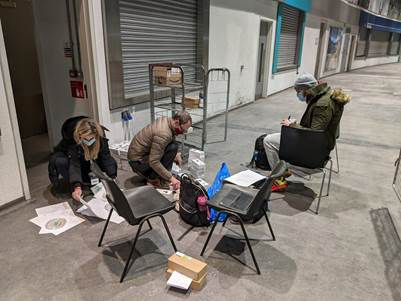AIRBODS team help to ‘open up’ the hospitality sector over summer 2021
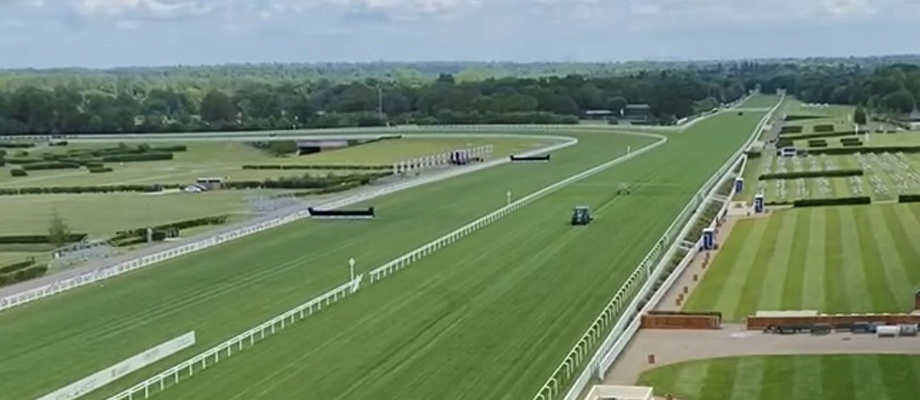
The AIRBODS team was asked to contribute to the governments Events Research Programme by carrying out the environmental study of a wide range of venues and events, between April and July 2021. This study helped to build the evidence base on air quality at a wide range of venues and events and improved understanding of potential risks of airborne transmission at events, and their mitigations. The study enabled the UK to re-open events in culture, music and sports industries whilst improving safety at these events. Analysis of the data is ongoing.
The authors of this blog on the team’s involvement in the Events Research Programme are Dr Filipa Adzic (Post-doctoral Research Associate, UCL) and Dr Ben Roberts (Post-doctoral Research Associate, Loughborough University).
It’s February 2021, and the United Kingdom has just gone through a very long and, in all aspects draining second wave of COVID-19 infections and deaths. The country has been under a national lockdown with schools, hospitality, and retail shut. Around the same time, the Prime Minister has announced the Events Research Programme, which will run pilots with large crowd sizes and reduced social distancing to evaluate the outcomes. I recall the excitement of the project team when we found out that over the next few months, our careers will be focused on helping re-start large events that have been regarded as “the last thing that will come back” to our lives during this pandemic. Personally, the thought of taking part in a project of such a scale, filled with so many unknown challenges, was both inspiring and motivating.
It was our task to measure carbon dioxide (CO2) concentrations inside the Events Research Programme venues. Over the project’s first three phases we monitored 10 venues over 55 event days and 179 inidividual zones. We monitored indoor CO2concentration because it is exhaled in breath and is an effective proxy for occupancy relative to the amount of ventilation, which can indicate the risk of long-range aerosol transmission indoors[1]. Understanding this risk will make a valuable contribution to assessing whether it is safe to reopen mass-participation events in a range of different venues.
The Events Research Programme was set up all around the country, with the first event starting in Sheffield. The World Snooker Championships took place in the Crucible Theatre from the 17th to the 3rd of May, with around 10,000 snooker fans attending.
Several events took place in London, starting with FA Cup Semi-finals at Wembley Stadium. Wembley was one of the most frequently monitored places during the Events Research Programme with 11 events, 8 of which were EURO 2020 football games. Seeing Wembley stadium completely empty sparked such unique emotions and excitement for what was to come.
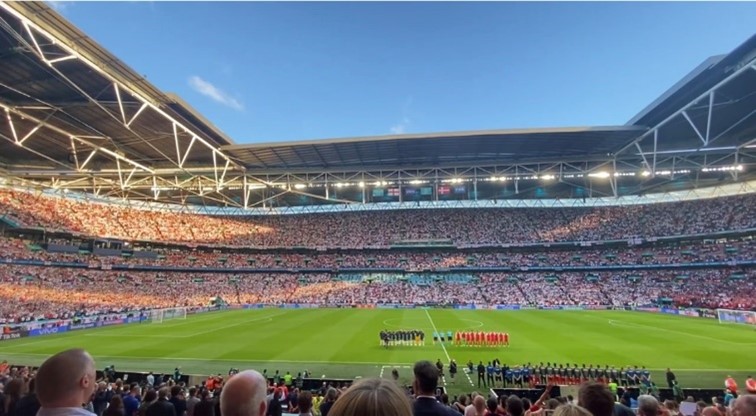
One of the most memorable moments for me was when Harry Kane scored the penalty in extra time in the England vs Denmark game, securing England’s place in the final. Thousands of fans were singing “It’s coming home”, and the stadium floors were trembling with the happiness of England football fans (little did they know at the time the disappointment that was about to follow a few days later in the final game). 11 events at Wembley were monitored with over 100 loggers installed for each event.
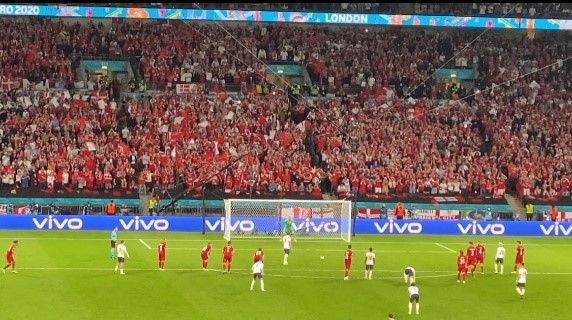
Another interesting Events Research Programme event was the Brit Awards, held in the O2 Arena on the 11th of May 2021. The team arrived at the Arena a few hours before the event to finish planned installations. Most of us enjoyed pre-event dress rehearsals while discussing experiment installations, methods, and findings. The event itself was mesmerising, and it felt like life was as it was pre-pandemic for a few hours. Elton John, Pink, Coldplay, Dua Lipa, Arlo Parks were amongst the many performers who entertained the audience of key workers with their exceptional talents.
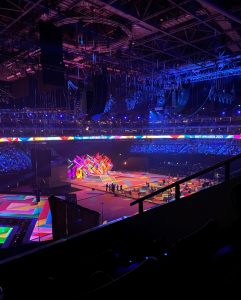
On the 15th of June 2021, it was time to get our formal daywear out and head to Royal Ascot for another day of research. We installed over 70 loggers in Royal and Queen Anne’s enclosures, including 11 restaurants, and monitored all five event days. We were given a private box to use as a base for the work we planned to do on the day not too far from the Royal box, which added to the excitement of attending such a high-profile event. Organised singalong taking part at the end of the event was a perfect way to finish a long day. We joined the next day of races too, and I remember leaving the racecourse at the end of the day thinking – taking part in scientific research while wearing a hat is a lot of fun!
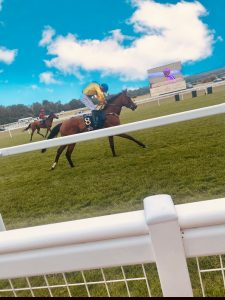
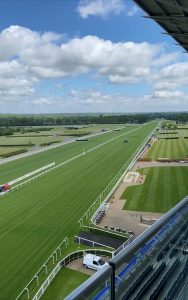
The Grange opera festival took place in mid-July 2021 in the Grange. The beauty and the quiet of the Northington countryside where the Grange is located provided a lovely balance to the previously attended events. Twelve opera nights at Grange were monitored as part of the Events Research Programme. Stand-up comedy shows at the Piccadilly theatre were the last attended London events. These events were a perfect ending to the hectic and exhausting four months of continuous experiment installations, field studies and data analysis. We saw a total of 8 comedians over three events that made us laugh and forget the stress of high pace work. Adam Kay: This is going to hurt performance was one of my favourites attended events overall. By the time of installation in the Grange and the Piccadilly theatre, we could strategically install over 50 loggers in less than 4 hours and decommission the space in less than 3 hours.
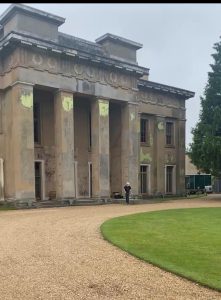
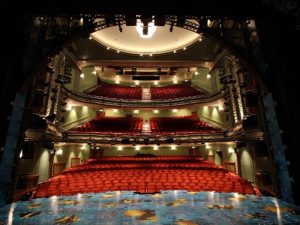
In Liverpool, the monitoring took place in two contrasting Events Research Programme venues. The first was the ACC Liverpool Auditorium – a 1,350 seater theatre, which hosted a business conference on the 28th of April 2021, attended by 150 people. The second was the Circus Nightclub – a converted Victorian-era warehouse which welcomed over 7,000 partygoers over two nights on the 30th of May and the 1st of June, 2021. The Circus Nightclub sensor installation presented a particular challenge as each sensor had to be protected by a metal cage due to the expected rowdiness of the crowd. Drilling and securing 33 sensors and cages into dense Victorian brick was hard work and could not have been done without the support of technical staff in the School of Architecture, Building and Civil Engineering at Loughborough University.
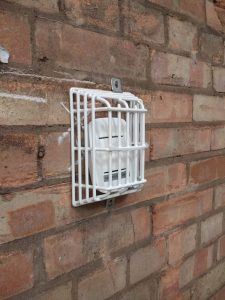
In Leicestershire, the Download Festival pilot was held at Donington Park, a site it has occupied since 2003. The festival took place over the weekend of 18-20 June, 2021. Over 10,000 festivalgoers attended. Monitoring was concentrated in a large open-sided “Big Top” circus tent, as this was one of the only semi-indoors stage areas on the site, and so might be at highest risk of poor ventilation. Heavy rain and a leaky “Big Top” tent meant some sensors malfunctioned and demonstrated the challenges of monitoring in semi-indoor spaces.
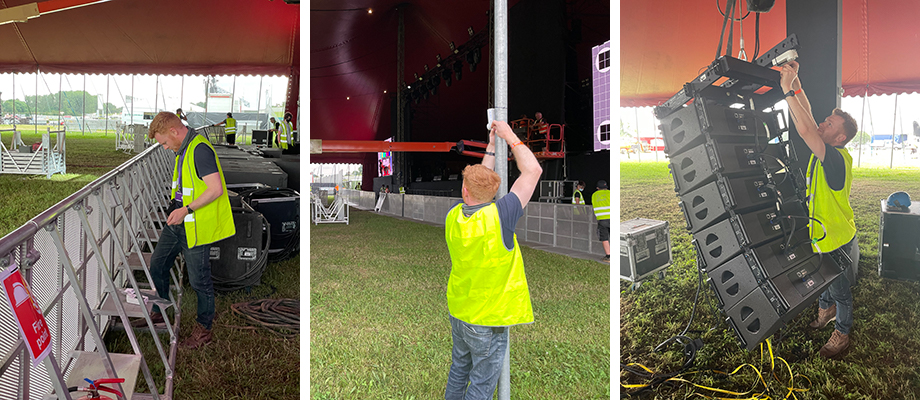
Summary
The AIRBODS team measured temperature, relative humidity, and CO2 concentration in 10 venues, comprising 55 individual events for the UK Government’s Events Research Programme over four months. Working at such an intense pace was a challenge for the team, but it was immensely rewarding to be involved in such a fast-paced project with such an important real-world impact. Being aware of this work’s effect on the general public and the economy kept us going through many sleepless nights and long working days. Ultimately, our work has enabled the re-opening of large, mass-participation events in the UK for the first time since the COVID-19 global pandemic in 2020.
[1] EMG and SPI-B: Application of CO2 monitoring as an approach to managing ventilation to mitigate SARS-CoV-2 transmission, 27 May 2021 – GOV.UK (www.gov.uk).
